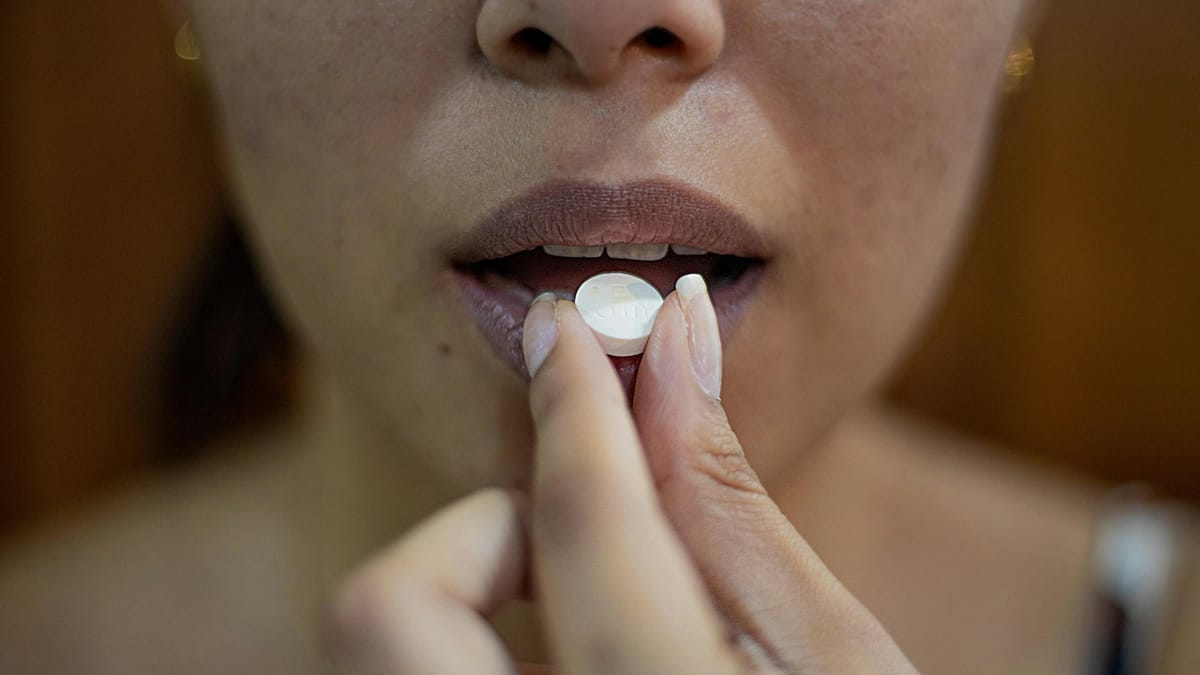Unraveling the Enigma and Complexities of Ivermectin's Impact on Human Health

Imagine a world where a single drug could revolutionize the fight against parasitic diseases, transform the lives of millions, and even hold the key to unlocking new treatments for a range of conditions. This is the extraordinary story of ivermectin, a medication that has captured the hearts and minds of scientists, healthcare professionals, and patients alike. From its humble beginnings as a soil-dwelling microbe to its current status as a global health powerhouse, ivermectin's journey is a testament to human ingenuity, collaboration, and the unwavering pursuit of a healthier world. But as we delve deeper into the complexities of this "wonder drug," we find ourselves confronting a tangled web of controversy, misinformation, and conflicting opinions.
Ivermectin, a medication first introduced in the 1980s, has had a profound impact on global health. Its discovery by Satoshi Omura and William C. Campbell, recognized with the Nobel Prize in Physiology or Medicine in 2015, marked a significant milestone in the fight against parasitic diseases. Initially used to treat onchocerciasis, or river blindness, ivermectin has since been employed to combat a range of nematode infections, including strongyloidiasis, loiasis, and filariasis.
The drug's effectiveness has led to significant reductions in the prevalence of river blindness, a disease that causes blindness and disfigurement in millions worldwide. Ivermectin has also been instrumental in the control and elimination of other parasitic infections, such as scabies and pediculosis. Its safety and efficacy have made it a staple in public health campaigns, particularly in developing regions where these diseases are most prevalent.
We will delve into the multifaceted role of ivermectin, exploring its potential applications beyond parasitic diseases and examining the ongoing research and debates surrounding its use.
The Double-Edged Sword of Ivermectin: Balancing Safety and Potential in Cancer Treatment
Ivermectin's safety profile has been well-established, particularly when used at recommended doses for approved indications. The drug has been shown to be generally well-tolerated, with a low incidence of adverse effects. It is essential though to note that ivermectin can exhibit toxicity at high doses. Clinical data and toxicology studies have demonstrated that excessive doses can lead to adverse reactions, including gastrointestinal disturbances, neurological symptoms, and even severe reactions in rare cases.
But what are the potential benefits of using ivermectin in cancer treatment? Could it be a game-changer for patients with late-stage cancer? Or are the risks of toxicity too great to justify its use? The cancer connection is rooted in ivermectin's ability to inhibit the nuclear factor kappa-light-chain enhancer of activated B cells (NF-κB) pathway, which plays a crucial role in cancer development and progression. Several studies have investigated the anti-cancer properties of ivermectin, primarily focusing on its ability to inhibit the NF-κB pathway. These findings suggest that ivermectin may have a role in the treatment of certain types of cancer, particularly those characterized by NF-κB dysregulation.
The current evidence is insufficient to support the widespread use of ivermectin as a cancer treatment. Further research is necessary to fully understand the mechanisms underlying its anti-cancer effects and to determine its potential therapeutic applications. Ongoing and future clinical trials will help clarify the safety and efficacy of ivermectin in cancer treatment, providing valuable insights for healthcare professionals and patients alike.
As researchers continue to explore the potential of ivermectin in cancer treatment, it is crucial to balance the excitement surrounding its anti-cancer effects with the need for rigorous scientific evidence. The drug's safety profile and potential toxicity at high doses must be carefully considered in any future clinical trials. Additionally, the development of more targeted and effective treatments for various types of cancer will require continued investment in research and the advancement of our understanding of the underlying mechanisms of cancer development and progression.
While ivermectin's potential in cancer treatment is intriguing, it is essential to approach this topic with a critical and nuanced perspective. By balancing the excitement surrounding its anti-cancer effects with the need for rigorous scientific evidence, we can ensure that this promising drug is developed and used in a responsible and effective manner.
Ivermectin, Cancer Treatment and COVID-19: What Do They Have in Common?
Ivermectin has been explored for its potential in treating COVID-19 too. Early studies and preprints have suggested that ivermectin may have a role in reducing the severity and duration of COVID-19 symptoms. For instance, a study published in the Journal of Medical Virology found that ivermectin significantly reduced the viral load in patients with mild COVID-19. Another preprint, published on medRxiv, reported that ivermectin treatment was associated with a significant reduction in hospitalization rates among patients with severe COVID-19.
But what do these early findings mean for the treatment of COVID-19? Are they a sign of a promising new treatment, or are they just a flash in the pan? The answer lies in the results of larger, well-designed randomized controlled trials (RCTs) and meta-analyses. Unfortunately, these studies have yielded mixed results. A systematic review and meta-analysis published in The Lancet found that ivermectin did not significantly reduce the risk of hospitalization or death in patients with COVID-19. Similarly, a large RCT conducted in Brazil found that ivermectin did not significantly reduce the risk of hospitalization or death in patients with mild COVID-19.
So, what is the position of health authorities on the use of ivermectin for COVID-19 treatment? The World Health Organization (WHO) and the National Institutes of Health (NIH) have both issued statements cautioning against the use of ivermectin for COVID-19 treatment. The WHO has emphasized that there is currently no evidence to support the use of ivermectin for COVID-19 treatment, and that the drug should only be used under the guidance of a healthcare professional. The NIH has also stated that there is no evidence to support the use of ivermectin for COVID-19 treatment, and that the drug should not be used for this purpose.
But what about the controversy surrounding ivermectin? Dr. Mary Talley Bowden, a Texas-based physician, has been a vocal advocate for the use of ivermectin in COVID-19 treatment. She has claimed that ivermectin has been effective in treating COVID-19 patients and has advocated for its use as a treatment option. Her claims have been met with skepticism by many in the medical community, who argue that there is insufficient evidence to support the use of ivermectin for COVID-19 treatment.
The controversy surrounding ivermectin highlights the importance of patient autonomy and the right to choose treatment options. Patients have the right to make informed decisions about their own health, and healthcare providers should respect these decisions. However, healthcare providers also have a responsibility to provide evidence-based care and to ensure that patients are fully informed about the potential risks and benefits of any treatment.
Some critics have accused health authorities of being biased towards vaccines and of downplaying the potential benefits of ivermectin. They argue that health authorities have been too quick to dismiss the potential benefits of ivermectin without fully considering the evidence.
Many experts argue that the evidence is clear: ivermectin is not an effective treatment for COVID-19, and its use should be limited to approved indications. While early studies suggested that ivermectin may have a role in reducing the severity and duration of COVID-19 symptoms, subsequent larger RCTs and meta-analyses have yielded mixed results. Health authorities have issued statements cautioning against the use of ivermectin for COVID-19 treatment, and many experts argue that the evidence is clear: ivermectin is not an effective treatment for COVID-19.
Scientific Evidence: A Critical Component in Guiding Treatment Decisions
The use of ivermectin in cancer treatment and COVID-19 has sparked a heated debate within the medical community. While some advocate for its potential benefits, others argue that the evidence is insufficient to support its use. At the heart of this debate lies the importance of scientific evidence in guiding treatment decisions.
High-quality evidence is essential in ensuring that treatment decisions are informed and effective. In the context of ivermectin, the lack of robust clinical trials and meta-analyses has led to a lack of clarity on its potential benefits and risks. While early studies suggested that ivermectin may have a role in reducing the severity and duration of COVID-19 symptoms, subsequent larger RCTs and meta-analyses have yielded mixed results. This highlights the importance of relying on high-quality evidence to guide treatment decisions.
The debate surrounding off-label use of medications is ongoing within the medical community. Off-label use refers to the use of a medication for a purpose other than its approved indication. In the case of ivermectin, some have argued that its potential benefits in cancer treatment and COVID-19 outweigh the risks, even if it is used off-label. However, others argue that the lack of robust evidence and the potential risks associated with off-label use make it a risky and unwise decision.
Plus, the use of ivermectin in cancer treatment and COVID-19 highlights the importance of evidence-based medicine in the treatment of diseases. It is essential that healthcare professionals rely on high-quality evidence to guide treatment decisions, rather than anecdotal reports or unproven claims. Continued research and clinical trials are necessary to explore the potential of ivermectin in various indications and to ensure that treatment decisions are informed and effective.
Sean's Fight Against COVID-19
Sean, a 35-year-old father of two, was diagnosed with COVID-19 in 2020. After experiencing severe symptoms, including fever, cough, and shortness of breath, Sean was hospitalized and placed on oxygen therapy. Despite the best efforts of his medical team, Sean's condition continued to deteriorate, and he was at risk of developing severe respiratory failure.
Desperate for a solution, Sean's family turned to alternative treatments, including ivermectin. They had heard about its potential benefits in treating COVID-19 and were willing to try anything to help Sean recover. Despite the lack of robust evidence supporting its use in COVID-19 treatment, Sean's family was convinced that ivermectin was their best hope.
Sean's story highlights the complexity of the debate surrounding ivermectin. While some argue that its potential benefits outweigh the risks, others argue that the lack of robust evidence and the potential risks associated with off-label use make it a risky and unwise decision. In Sean's case, ivermectin was used in combination with other treatments, including oxygen therapy and antiviral medications. This combination therapy helped Sean recover from his severe COVID-19 infection and avoid the need for mechanical ventilation.
Your Top Questions Answered
What is ivermectin?
Ivermectin is a widely used antiparasitic drug that has been used to treat a variety of parasitic infections, including river blindness, scabies, and lice infestations.
What is ivermectin used for?
Ivermectin is used to treat parasitic infections, including river blindness, scabies, and lice infestations. It has also been explored for its potential in treating COVID-19, although the evidence is mixed and it is not approved for use in COVID-19 treatment by regulatory agencies.
Is ivermectin effective in treating COVID-19?
The evidence for ivermectin's use in COVID-19 treatment is mixed. Some studies suggest that it may be effective, while others suggest that it is not. The World Health Organization (WHO) and the Food and Drug Administration (FDA) have not approved ivermectin for use in COVID-19 treatment.
What are the potential side effects of ivermectin?
Ivermectin is generally well-tolerated, but it can cause side effects such as gastrointestinal disturbances, neurological symptoms, and even severe reactions in rare cases. It is essential to use ivermectin under the guidance of a healthcare professional and to follow the recommended dosage.
How does ivermectin work?
Ivermectin works by inhibiting the activity of certain enzymes in the body, which helps to kill parasites. It has also been suggested that it may have anti-inflammatory and immunomodulatory effects, which could contribute to its potential benefits in treating COVID-19.
What are the potential benefits of using ivermectin?
Ivermectin has been suggested to have potential benefits in treating COVID-19, including reducing the severity and duration of symptoms. It may also have anti-inflammatory and immunomodulatory effects, which could contribute to its potential benefits in treating other diseases.
Key Takeaways
- Ivermectin is a widely used antiparasitic drug: Ivermectin is a widely used antiparasitic drug that has been used to treat a variety of parasitic infections, including river blindness, scabies, and lice infestations.
- Ivermectin has been explored for its potential in treating COVID-19: Ivermectin has been explored for its potential in treating COVID-19, with some studies suggesting that it may have a role in reducing the severity and duration of symptoms.
- The evidence for ivermectin's use in COVID-19 treatment is mixed: The evidence for ivermectin's use in COVID-19 treatment is mixed, with some studies suggesting that it may be effective and others suggesting that it is not.
- Ivermectin is not approved for use in COVID-19 treatment: Ivermectin is not approved for use in COVID-19 treatment by regulatory agencies such as the FDA and the WHO.
- The use of ivermectin for COVID-19 treatment is controversial: The use of ivermectin for COVID-19 treatment is controversial, with some healthcare professionals and researchers arguing that it is not effective and others arguing that it may be effective.
- Ivermectin has potential benefits in cancer treatment: Ivermectin has potential benefits in cancer treatment, with some studies suggesting that it may be effective in treating certain types of cancer.
- The evidence for ivermectin's use in cancer treatment is limited: The evidence for ivermectin's use in cancer treatment is limited, with most studies being small and having methodological limitations.
- Ivermectin is not approved for use in cancer treatment: Ivermectin is not approved for use in cancer treatment by regulatory agencies such as the FDA and the WHO.
- The use of ivermectin for cancer treatment is controversial: The use of ivermectin for cancer treatment is controversial, with some healthcare professionals and researchers arguing that it is not effective and others arguing that it may be effective.
- Evidence-based medicine is essential in the treatment of diseases: Evidence-based medicine is essential in the treatment of diseases, as it ensures that treatment decisions are guided by robust evidence and careful consideration of the potential benefits and risks of treatments.
Thank you for reading this post!
If you found it helpful or informative, please consider sharing a 7 day free trial with your friends, family, or colleagues who might benefit from it.
Your support helps me reach more people and spread awareness on important topics like this. Together, we can make a difference!
References
https://www.ncbi.nlm.nih.gov/pmc/articles/PMC10054244/
https://www.frontiersin.org/journals/pharmacology/articles/10.3389/fphar.2021.717529/full
https://www.sciencedirect.com/science/article/abs/pii/S1043661820315152
https://www.ncbi.nlm.nih.gov/pmc/articles/PMC7505114/
https://www.ncbi.nlm.nih.gov/pmc/articles/PMC9459089/
https://www.ncbi.nlm.nih.gov/pmc/articles/PMC10054244/
https://www.sciencedirect.com/science/article/abs/pii/S1043661820315152
https://www.ncbi.nlm.nih.gov/pmc/articles/PMC7505114/
https://www.ncbi.nlm.nih.gov/pmc/articles/PMC9459089/
https://www.mdpi.com/2079-9721/11/1/49
https://www.mdpi.com/2039-4403/13/1/30/review_report
https://www.ncbi.nlm.nih.gov/pmc/articles/PMC10054244/
https://www.sciencedirect.com/science/article/abs/pii/S1043661820315152
https://www.ncbi.nlm.nih.gov/pmc/articles/PMC7505114/
https://www.nejm.org/doi/full/10.1056/NEJMc2114907
https://www.nature.com/articles/ja201711
https://www.ncbi.nlm.nih.gov/pmc/articles/PMC8195608/
https://www.ncbi.nlm.nih.gov/pmc/articles/PMC3043740/
This article was written by Ariadna Paniagua, an experienced writer and editor for several institutions, papers, and websites.




